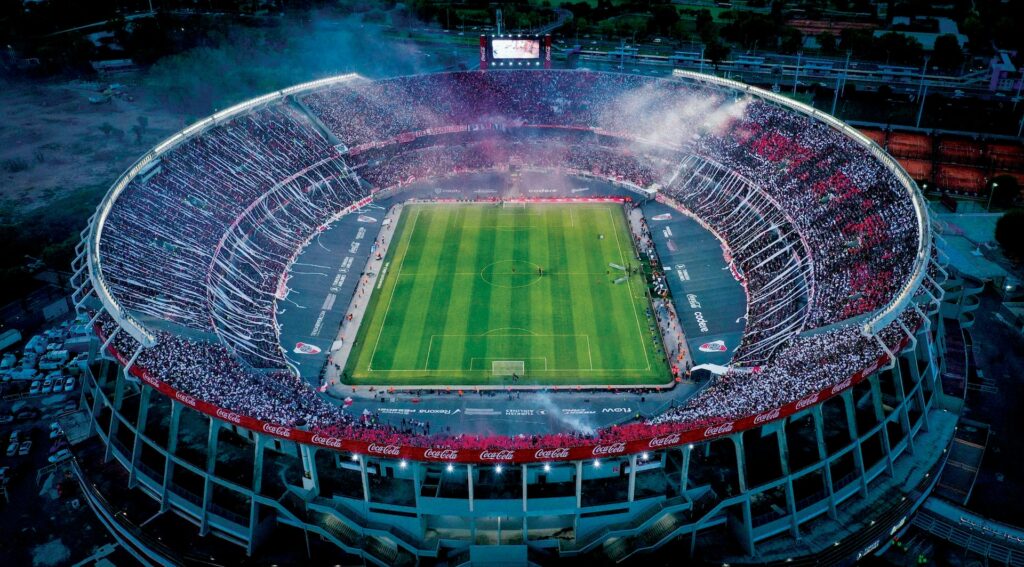If you’ve ever watched a football game from the Primera División, you may have been surprised to see that during the games only the home fans are present in the stands. Argentina is a country where football runs through people’s veins, and every game (no matter its importance) is lived with a lot of passion and excitement. The result is that sometimes things can get out of hand, as some fans take things too far and cause violence.
When were away fans banned from stadiums?
Away fans weren’t always disallowed from attending football games in Argentina.
It was in 2013 when the ban came into place, as a result of ongoing football-related violence in the country.
Between the years 2000-2013, over 70 football supporters had been killed. The final straw came in 2013 with the death of Lanús supporter, Javier Gerez.
During a game between Estudiantes de La Plata and Lanús, violence broke out in the form of a fight outside of Estudiantes’ stadium. Many fans inside the stadium heard the commotion and rushed outside to join in, worsening the situation.
Local police were forced to get involved and spectators began running to find cover from a flurry of rubber bullets. A tragedy occurred when Gerez was struck in the chest by a rubber bullet, fired by a police officer.
Consequently, away fans were banned for the rest of the season in the Province of Buenos Aires and, a day later on 10th June, 2013, the AFA (Asociación del Fútbol Argentino) announced that the ban would be extended to the rest of the country. Away fans have been prohibited from attending games ever since.
The history of football-related violence in Argentina
Football-related violence has been a problem for many countries over the years. Many will have heard of the term “hooliganism”, which describes the relationship between football and violence. This relationship actually goes as far back as the 1880s, where hooliganism began in the UK. A particular case which can be referenced involved a match between Preston North End and Aston Villa, where a 5-0 victory by Preston led to both teams being violently attacked by supporters.
In Argentina, one of the oldest recorded cases of football violence can be traced back to 1916, during a match between Argentina and Uruguay, where violence broke out as a result of the over-sale of tickets. Over 40,000 supporters had piled into a stadium which only had the capacity for around half that number. The stands were set on fire and the match suspended. The first death recorded at a football game in Argentina can be traced back to 1922.
In the same way that the UK uses the term “hooligans” to describe those who cause trouble at football games, Argentina uses the term “barras bravas”, “barra” meaning gang/fan and “brava” meaning violent. The term began to be used to refer to football gangs in the 1950s and, although the groups didn’t begin as particularly violent entities, over the years las barras bravas have become an increasing problem. Nowadays, many of the gangs are well-organised and managed almost like businesses, with the barras bravas of the biggest clubs making millions and possessing a level of political and policial influence. Much of their income comes from match day parking and the sale of drugs.
A particularly horrible incident occurred on 30th April, 1994. After a match between River Plate and Boca Juniors (which River Plate won 2-0), two coaches full of River Plate fans were attacked by “La 12”, the barra brava of Boca Juniors. Firstly, rocks were thrown, and then shots fired. In the attack, two River Plate fans, Ángel Delgado and Walter Vallejos, were killed.
The future of football in Argentina - Salvemos al Fútbol
The sad truth is that banning away supporters from football matches has done little to improve the situation in Argentina. On the contrary, since the ban, there have been 74 recorded football violence-related deaths, with the most recent being on 30th October, 2023, with the murder of Rosario Central supporter, Ivana Paula Garcilazo Bellón.
Salvemos al Fútbol (Let’s Save Football) is an Argentine organisation which aims to find and propose solutions to the problem of football-related violence. Such solutions put forward by the organisation involve better equipping security forces, the acceptance of responsibility, the control of social media to prevent organised violence and the improvement of conditions within football stadiums. Given the high level of organisation of many of the barras bravas, Salvemos al Fútbol also suggests making agreements with the gangs to provide them with certain benefits, in exchange for the promise of no violence.
If you wish to find out more about Salvemos al Fútbol, you can visit their website here and donate money if you wish to support the organisation.
Football will likely always be a sport which instills passion into the hearts of the Argentinian people, but if the sport is to continue being accessible to all, there clearly needs to be a change. Many, especially those with young children, are too worried for their safety to go to watch a football match.
Have you ever been to a football game in Argentina? What was your experience like? Do you agree with away fans being banned from matches? Tell us what you think in the comments below!

